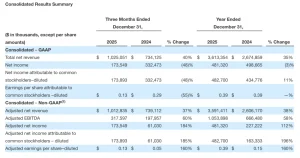India’s Emerging Tryst with Cryptocurrency: Between Regulation, Innovation, and Global Opportunity

India stands at a critical crossroads in the global cryptocurrency narrative — balancing the promise of digital innovation with the need for regulatory stability. As blockchain technology and virtual assets gain traction worldwide, the country’s policymakers, investors, and fintech entrepreneurs are navigating a complex landscape shaped by both opportunity and caution. With growing retail participation, the rise of Web3 startups, and the prospect of digital currency integration, India’s stance on cryptocurrency is evolving from skepticism to strategic engagement. The coming years may determine whether the nation becomes a global hub for digital finance or remains a cautious observer of crypto’s rapid evolution.
A Nation Caught Between Caution and Curiosity
India’s journey with cryptocurrency has been both dynamic and divided. While millions of retail investors have embraced digital assets as a new frontier for wealth creation, regulators have approached the sector with understandable caution. The Reserve Bank of India (RBI) has long maintained concerns about volatility, money laundering, and financial stability, calling for global cooperation on crypto oversight.
Yet, despite these reservations, the Indian public’s interest in digital currencies continues to grow. Industry estimates suggest that over 15 million Indians have invested in cryptocurrencies, making the country one of the largest potential markets for digital assets globally. This expanding base reflects a generational shift in financial thinking — where technology, accessibility, and decentralization are redefining trust and value.
Regulatory Landscape: The Push for Clarity
The absence of a comprehensive legal framework remains a key challenge for India’s cryptocurrency ecosystem. The government has yet to formalize specific legislation regulating the issuance, trading, and taxation of virtual assets. However, recent developments indicate a shift toward structured oversight rather than outright prohibition.
The introduction of a 30% tax on crypto income and a 1% tax deducted at source (TDS) on digital asset transactions was an early sign of recognition — treating cryptocurrency as a taxable asset rather than an illicit instrument. While this move legitimized the industry to an extent, it also curtailed liquidity and trading volumes, prompting calls for more balanced taxation policies.
Policymakers are now exploring frameworks aligned with international norms, particularly those set by the Financial Action Task Force (FATF) and G20 guidelines, which emphasize anti-money laundering (AML) compliance and investor protection. The evolving discourse suggests that India’s regulatory journey is moving toward inclusion rather than exclusion.
Crypto as a Catalyst for Innovation
Beyond trading, India’s engagement with cryptocurrency extends to blockchain innovation — a field where domestic startups are making notable progress. From decentralized finance (DeFi) platforms and Web3 applications to non-fungible token (NFT) marketplaces, the country’s tech ecosystem is leveraging blockchain for transparency, traceability, and trustless transactions.
Several fintech firms are developing blockchain-based solutions for supply chain logistics, financial inclusion, and digital identity verification. This entrepreneurial momentum is supported by India’s robust IT sector, young developer base, and growing venture capital interest in crypto-linked projects.
The Digital Rupee, India’s official central bank digital currency (CBDC), further signals the nation’s willingness to integrate blockchain technology into its financial architecture. By offering a regulated digital alternative to private cryptocurrencies, the RBI aims to enhance transaction efficiency and cross-border settlement capabilities while retaining monetary control.
Investor Behavior and Market Dynamics
Despite regulatory uncertainty, investor enthusiasm in India remains strong, albeit more measured. Retail participants increasingly view cryptocurrencies as a supplementary investment class, akin to gold or real estate. Younger investors — particularly those between 25 and 35 — are driving adoption, attracted by fractional ownership, high liquidity, and the potential for exponential returns.
However, market volatility remains a major deterrent. The fluctuations of Bitcoin, Ethereum, and other leading assets have reminded investors of the risks inherent in this emerging asset class. Financial advisors are urging diversification and risk assessment, encouraging investors to treat crypto not as speculation but as part of a balanced portfolio strategy.
Crypto exchanges operating in India have adapted by focusing on transparency, education, and compliance — implementing robust Know Your Customer (KYC) measures and collaborating with regulators to establish credibility.
The Road Ahead: Balancing Innovation and Regulation
India’s future in the cryptocurrency sector hinges on its ability to strike equilibrium between innovation and oversight. A progressive regulatory regime could unlock vast economic potential, attracting global investors, fostering blockchain innovation, and positioning India as a leader in digital finance. Conversely, excessive restriction could push innovation offshore, depriving the economy of a transformative technological wave.
The global financial ecosystem is rapidly digitalizing, and India’s demographic advantage — a young, tech-savvy population — makes it uniquely positioned to lead this transformation. A balanced policy framework, combined with education and infrastructure support, could enable India not only to participate in the crypto revolution but to shape its direction.
Conclusion
India’s evolving relationship with cryptocurrency reflects a larger narrative — one of adaptation, ambition, and prudence. As the world moves toward decentralized finance and tokenized economies, India’s choices today will define its role in tomorrow’s digital order. Whether as a global innovator or a cautious regulator, the country’s engagement with cryptocurrency is no longer a question of if — but how.




